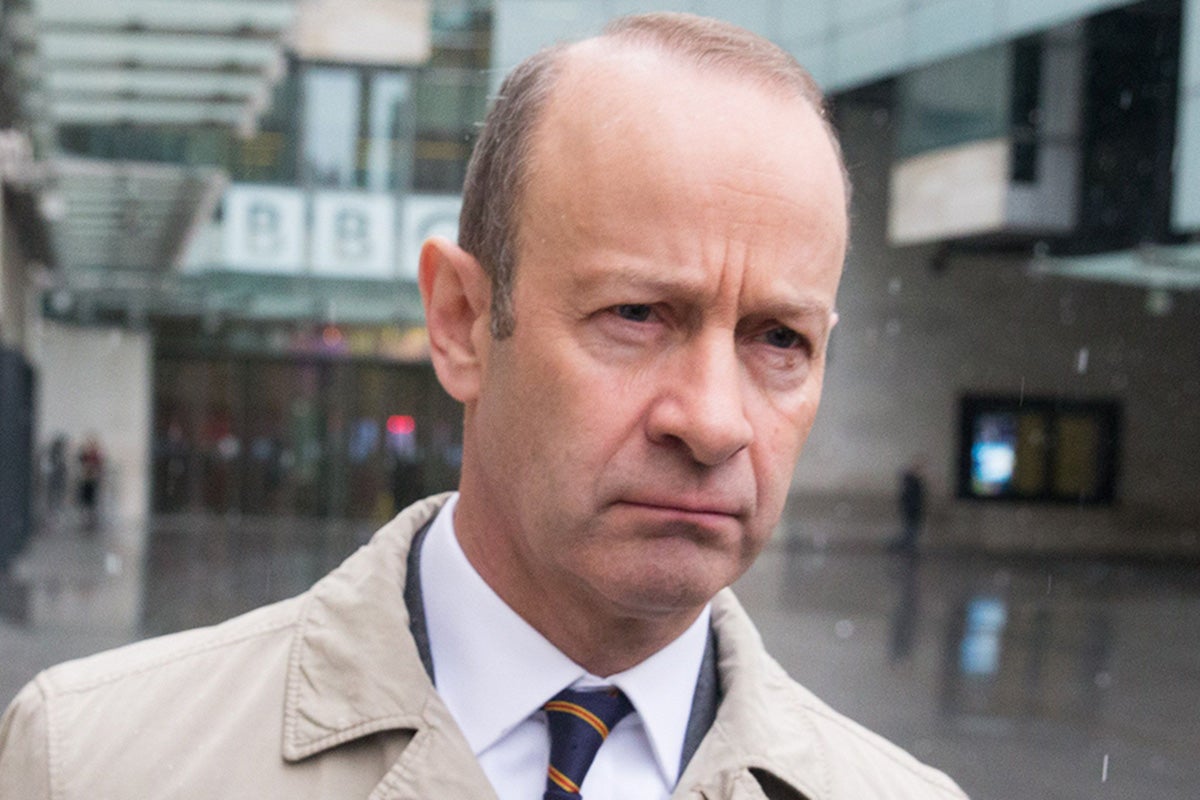This may be the end of Ukip, but its ideas will not die as easily
The game was up for the party long before Mr Bolton found himself with a model to go out with

To borrow a phrase, Ukip is a dead party walking. The necessary delusion that its remaining members and the unknowns who run the party is that if they manage to find themselves yet another new leader then things will somehow recover and Ukip will be able to return to its self-appointed role of holding the Government’s feet to the fire over Brexit.
If anyone is being consumed by flames right now, it is the UK Independence Party. It is simply too far gone to be make a comeback, even if Lazarus himself was nominated to take over from Henry Bolton. The danger is what may come after it – a well-funded explicitly populist, Trumpesque new party led by Nigel Farage. For all the opprobrium heaped upon him, Mr Farage has a proven ability to exploit every possible grievance the public is prey to.
He, and his ideas, are dangerous. Such a project is being actively mooted.
In that context, Mr Bolton is correct: to have another leadership election will kill the party to all intents and purposes. His opponents – which include his entire executive, a range of obscure spokespeople and some MEPs – are also right: Ukip under Mr Bolton is toxic and Ukip is finished with him as leader.
Maybe it is unfair: maybe Mr Bolton’s personal life, and the apparently racist views of his young now ex-girlfriend, are not relevant to the cause of Brexit, but the fact is that the publicity surrounding her unhinged tweets is not going to go away and continue to distract and erode whatever is left of Ukip’s political capital.
The ultimate irony of Brexit is that Ukip’s last redoubt, its dozen or so seats in the European Parliament elected at a high point in Ukip fortunes in 2014, will disappear with Brexit.
The game was up for Ukip, however, long before Mr Bolton found himself with a model to go out with, or his three immediate predecessors had to quit. The general election, under which the party was sled by the ineffectual and appropriately named Paul Nuttall, didn’t kill Ukip but simply drew attention to its corpse – an inevitable result of the Leave result in the EU referendum of 2016.
The public, perfectly sensibly, concluded that Ukip, like a drone in bee swarm, had served its single purpose in life by fertilising the Leave campaign, and could now fall to the ground, crawl under a stone and die with as much dignity as it could muster. That Nigel Farage took the opportunity to quit while he was winning in 2016 spoke volumes about his own view of the future for the party.
Which is not to say that Mr Farage takes a pessimistic view of his own political future. He can pursue Ukip’s core support and its various reactionary policies through a fresh vehicle for his ambitions. While public opinion has shifted since the 2016 vote, towards both a referendum on the final Brexit deal and towards the case for staying in the EU, there is still a passionate minority of the British population for whom nothing less than hard or “clean” Brexit and zero net migration will do (this includes the fringe of the public who take to social media and the comments sections on populist newspaper websites to declare that they would like to shut the Channel Tunnel, and believe Theresa May is a “Brexit traitor”).
The British political system is notoriously ruthless in disposing of insurgent political parties. As the Social Democrats, Greens and the BNP, variously, have discovered in the past few decades, a combination of first past the post for Commons elections and the sheer resilience of the Labour and Conservative parties have frustrated many a plan to “break the mould”.
However, the short-term success of those parties has exerted political influence, most dramatically when the strength of Ukip in the earlier part of this decade panicked David Cameron into promising his ill-fated In/Out European referendum. Mr Cameron complacently assumed that he would win the referendum almost as a formality; the forces unleashed by Mr Farage, operating as a sort of auxiliary force to the main Leave campaign headed opportunistically by Boris Johnson, delivered the most violent political change in direction for Britain in many years.
Ukip, then, mattered for a while and had to be taken seriously, as did the reasons for its successes. The failure of mainstream politicians such as Mr Cameron and Ed Miliband to listen to, and act on, the concerns of voters who felt neglected and “left behind” allowed Ukip a space to thrive and offer simplistic solutions to complex problems – immigration, Europe, spongers. When Ukip ceased to be fit for purpose, a good deal of the protest vote it garnered defected to another prophet offering some easy answers – Jeremy Corbyn at the last general election. There is every chance that those dissatisfied voters – and, ironically, the ones who will become more disillusioned once Brexit starts to wreck local economies – will turn again to the bar-room patter of Mr Farage and whatever his new party will be called.
Ukip may well be ready for its last rites, but the values, opinions and supporters that gave it life have not disappeared. Its next incarnation could be more serious and more vicious than the last.

Join our commenting forum
Join thought-provoking conversations, follow other Independent readers and see their replies